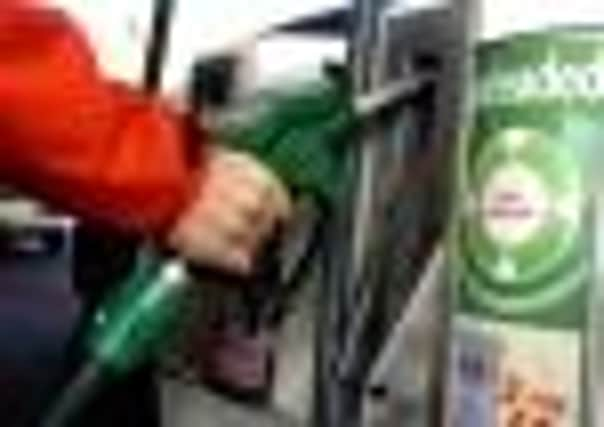UK inflation falls to 2.8% as fuel and food price rises slow


• Inflation falls to 2.8 per cent in May
• Latest rate driven by drop in petrol pump prices
• Bank of England could now embark on more quantitative easing
The Consumer Price Index (CPI) rate of inflation in May was at its lowest since November 2009 when it was 1.9 per cent before it climbed to 2.9 per cent in December 2009.
Advertisement
Hide AdAdvertisement
Hide AdThe figures from the Office for National Statistics showed that inflation had fallen 0.2 per cent from the 3 per cent recorded in April this year.
According to analysts, the drop was driven by a sharp drop in petrol pump prices, as the average petrol price fell by 4.5p per litre between April and May to stand at 137.1p. Last year, the average petrol price rose 2p to 136.3p.
Inflation has fallen from 5.2 per cent last September due to the waning impact of the VAT hike at the start of 2011 and falling energy, food and commodity prices, easing pressure on squeezed household incomes.
Despite the fall outlined in today’s figures, inflation has still not pulled back as quickly as the Bank of England initially expected. The increasing tensions between the West and Iran pushed oil prices higher in March. But the cost of crude oil has fallen since then and May’s inflation figures show that this is starting to benefit consumers.
Average diesel prices also decreased, dropping 4.4p to 143.3p between April and May, compared with a 0.7p rise last year to 141.5p.
The fall in inflation in May is likely to bolster the case for the Bank to pump more emergency cash into the economy through its quantitative easing programme, as the eurozone crisis escalates and threatens to destabilise the UK economy.
Vicky Redwood, chief UK economist at Capital Economics, said: “The further fall in UK inflation in May is a nice surprise, given that we and the consensus had expected it to hold broadly steady. Headline inflation will probably stay around this level in June, but it should then start to fall more quickly and we still think it could be below 2 per cent before the end of the year.”
Britain’s economy entered a technical recession in the first quarter of the year as gross domestic product declined 0.2 per cent, following a 0.3 per cent drop in the final quarter of 2011.
Advertisement
Hide AdAdvertisement
Hide AdLast month, inflation moved to within 1 per cent of the government’s 2 per cent target, meaning Bank Governor Sir Mervyn King did not have to send a letter of explanation to the Chancellor.
A Treasury spokesman said: “Inflation is out of Open Letter territory for the second month in a row, which is good news and is providing some welcome relief for family budgets.”
In further evidence that the weak economic climate is forcing retailers to cut prices to draw in customers, food and drink prices rose by just 0.3 per cent, compared with a much steeper 1.3 per cent rise last year.
The ONS said this was driven by declines in the price of fruit. The price of vegetables, mineral waters, soft drinks and juices also fell.